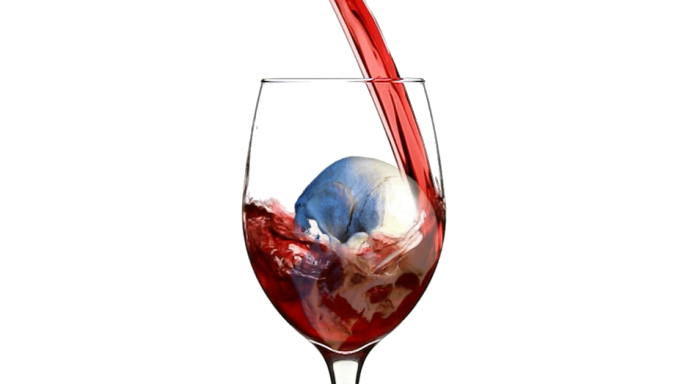If wine will be the death of you ... would you still drink it?
As if we didn’t already have enough to worry about, what with cataclysmic climate change, chronic political meltdown and a shortage of fish and chips, it turns out that wine is going to kill you. At least, that is what you might think if you had read recent news stories about the risks of consuming alcohol.
So, having recently written about such piffling fripperies as whether wine requires faith (possibly) and whether wine is a force for good (possibly not), let’s keep things light-hearted with a sideways glance at our own unavoidable mortality.

Over eight days recently, the BBC website ran six stories about alcohol, including such headlines as ‘One drink a day increases stroke risk’ and ‘How many cigarettes in a bottle of wine?’ These are typical of the way that alcohol has become increasingly demonised over the last decade – and not just in the UK. The World Health Organisation reportedly has alcohol clearly in its sights. As a result, anti-alcohol rhetoric is now one of the most pressing threats to the world of wine, not least because campaigners don’t discriminate between forms of alcohol. To them, wine and moonshine represent exactly the same danger.
The default response of the industry seems to be to debunk the research that has prompted the scaremongering headlines. Christopher Snowdon is one of the most clinical of these commentators. He poured scorn on the story claiming equivalency between drinking wine and smoking cigarettes. I will let Homer Simpson give us the final word on so-called facts.
Snowdon's takedown of the inherent bias, flawed methodologies and spurious conclusions that often run through these reports is relentless and brutal – but it does precisely no good at all. Despite all such efforts, reports about the risks of alcohol consumption keep coming thick and fast. There is enough conflicting evidence out there for people to believe whatever they want about wine and health (for arguments considering the benefits of alcohol, look no further than this Oxford Companion entry) but the prevailing mainstream attitude seems to side with the abstemious.
When I started in the wine trade 18 years ago, the concept of the ‘Mediterranean diet’ was widely accepted as a sound reason to drink wine. Today, the idea of claiming that wine can be good for you at all has become almost anathema. But again, the actual facts don’t matter, it is the perception of those facts that is of most importance.
Just for fun, let’s accept that wine can never be advantageous for health, and that drinking any amount of it might be damaging. What then?

The average age of death for a male in the UK is 79 years, two weeks and four days. By that reckoning, I’m 51% of the way there. And when it does happen, the top five most likely ways I will die – told you it’d be fun – are: heart disease, dementia and/or Alzheimer’s, respiratory disease, lung cancer and stroke.
The table above shows that heart disease caused 1,516 male deaths per million population in 2017. For alcohol-specific deaths, that figure is just under two.
But actually, my intention is not to prove or disprove something by cherry-picking statistics because, as I noted earlier, these days perception trumps reality (and I choose that verb deliberately). Nor am I trying to gloss over the fact that alcohol can have severely detrimental affects not just on personal health but on society more generally.
The point I want to make is this: even if I accept all the supposed health risks of drinking alcohol, then I am still going to drink it.
And my reasons behind that decision reveal that the value of wine goes far beyond health.
In this episode of his excellent podcast, Malcolm Gladwell argues that American Football must be boycotted because the collisions it involves are known to cause a degenerative brain disease that is responsible for the deaths of otherwise healthy students. Regardless of the truth of that, the response from many college players is that the benefits they get from playing – the scholarships, the camaraderie, the sheer excitement of playing – outweigh any risk. Even a potentially fatal one.
Without wishing to sound too frivolous about the importance of health, simply being alive is a hazardous activity. Every breath we take – and every sip we take – brings us a step closer to our ultimate destiny. Nothing we do is without risk.
Among wine lovers such as ourselves, the arguments in favour of the value of wine are well-rehearsed – but nevertheless bear repeating. At its best, wine offers a range of flavours and textures that stimulate our intellect and emotions as much as they stimulate our palates. Furthermore, wine has immense cultural and historical value – it captures a specific time and place in a way that is unmatched by any other food or drink. ‘To see a world in a drop of wine', as Blake almost put it.
And, let us not forget one of the most important but most often overlooked factors: the alcohol contained in wine makes you feel good.
Assuming I am statistically representative, then I don’t want to spend the 49% of my time on this earth without the sheer joy that wine brings to my life. It is, and will always be, entirely, absolutely, categorically worth the risk.

